Lead an industrial revolution and change history in Anno 1800
Ubisoft's strategy series goes back in time.
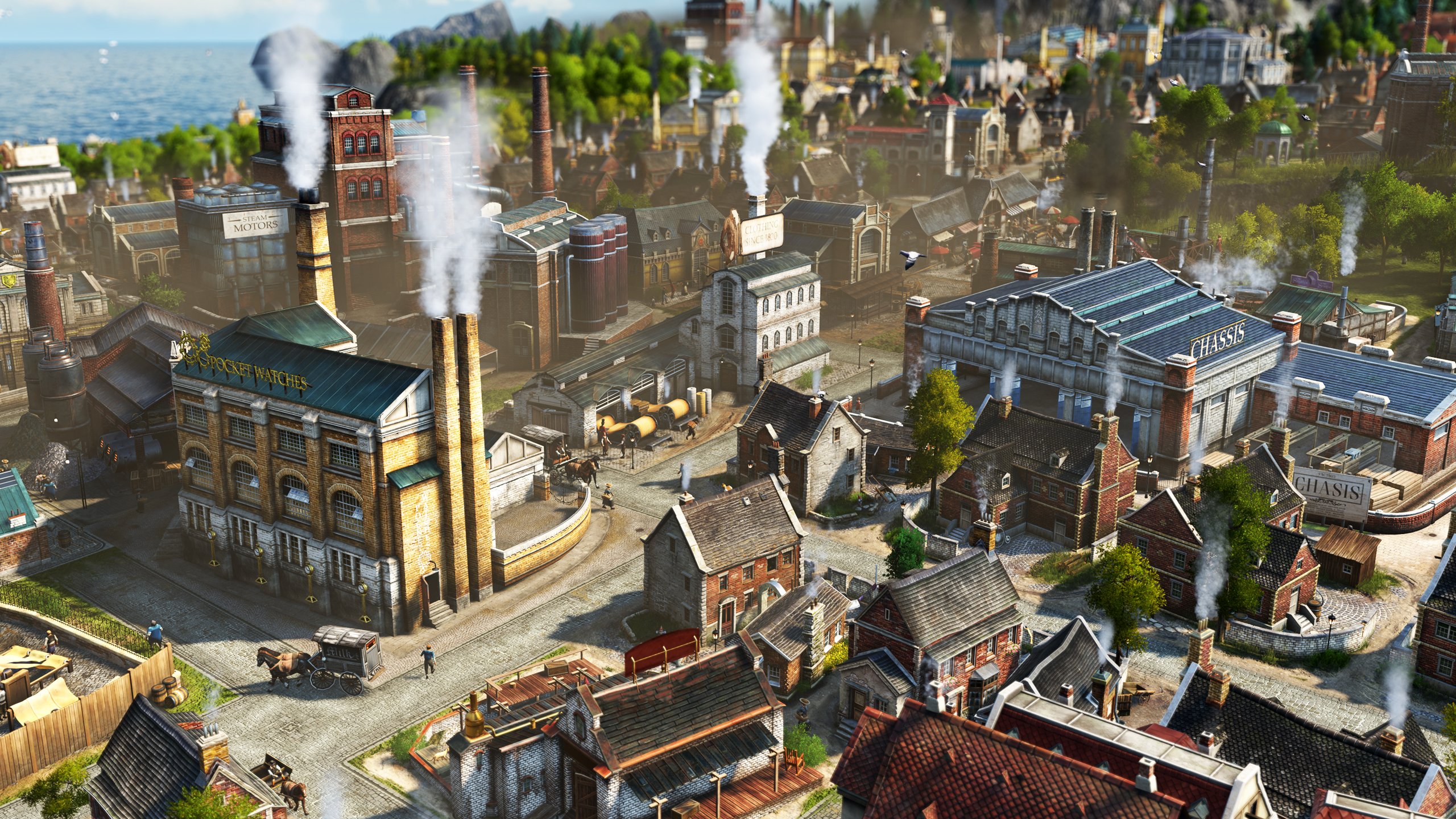
The Anno series has been around for 20 years, with historical settings ranging from the 16th Century colonisation of the New World to a distant, technologically advanced future. But in its newest game, German developer Ubisoft Blue Byte is focusing on the Industrial Revolution of the 1800s. In Anno 1800 you’ll grow a small, rustic farming community into a prosperous, bustling, cultured city by harnessing the mighty powers of steam and steel.
Anno has a dedicated, passionate fanbase, but what if you’ve never played one of these games before? I ask Dirk Riegert, creative director, what he thinks sets the series apart from other city-building strategy games. “In some respects Anno is like other city builders,” he says. “But the difference is, while those games often focus mainly on the building aspect, Anno is also a deep, multifaceted simulation. It has elements usually found in turn-based strategy games. Diplomacy, warfare, and so on. But in our games those features are deeply connected to the building side of things. That’s what makes it unique, I think.”
“Also, there’s always a ship on the cover art of an Anno game,” he adds. “Exploration and adventure are very strong themes in the series, which are normally not part of a classic building game.” I get a taste of this when, during a three-hour hands-on demo of the game, I find myself sending a ship on an expedition to a faraway land. Before the ship departs I select supplies and crew, some of which have buffs that’ll help me on my mission. Taking beer will aid diplomacy; hiring a reliable, trusted captain will raise morale.
The ship sets sail and, later, a story event is triggered. The crew makes landfall on a place called, curiously, Love Island. They’ve fallen in love with the natives there, which has greatly offended the chief. But, thanks to the beer I brought along, and the charisma of a comedian I added to the crew, I’m able to calm the chief down. I receive a selection of valuable artifacts that I can display in my capital’s museum, raising the city’s profile. These interactive fiction-style moments are colourfully written and have many different outcomes, not all of which are positive. It’s a good thing I brought that lager.
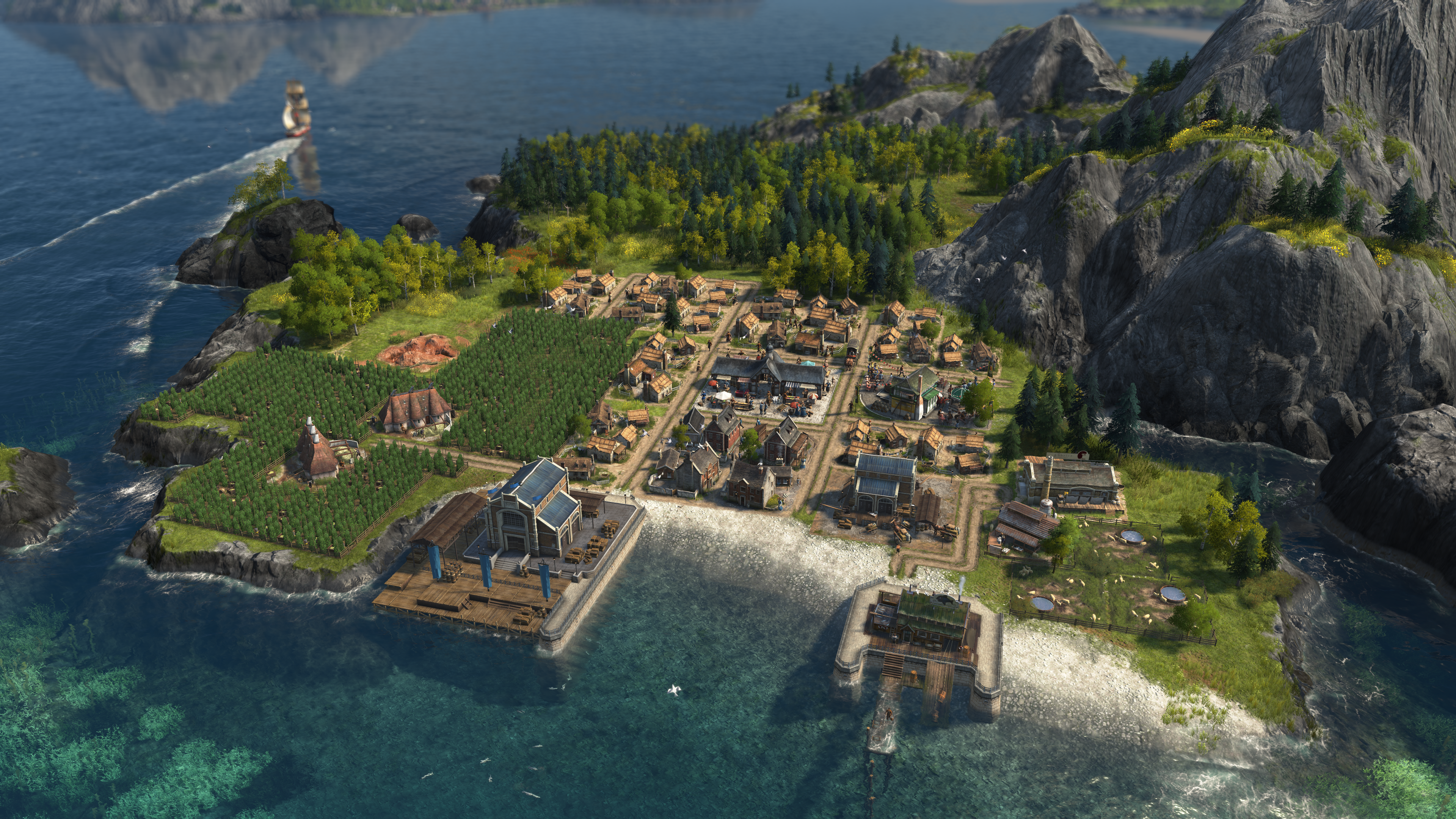
In the early stages your civilisation is little more than a scattering of farms, shacks, logging cabins, and market squares. It’s a lovely, peaceful, tranquil period as you slowly grow your settlement. But then you discover the means to produce iron and bricks, and soon your little hamlet has grown into an urban sprawl with factories belching black, sooty smoke into the atmosphere. It’s kind of a shame to spoil something so idyllic, but hey, that’s progress for you. It helps that even if your city is an unhappy, polluted hellhole, Anno 1800 looks stunning. There’s a fidelity of detail and intricacy of animation that makes your cities pulse with life and personality, and flying around them, admiring your progress in the cinematic ‘postcard mode’, is a delight.
I ask Riegert why Blue Byte felt the Industrial Revolution was a good fit for Anno. “It’s a good fit for a strategy game in general” he explains. “When we really got into the research, we realised there was so much cool stuff we could do from a design perspective. More than we could ever fit into one game, actually!” Anno 1800, he says, is based mainly on the Second Industrial Revolution, which counted railroads and electricity among its world-changing technological advancements. “Even though the game is named Anno 1800, we’re more in the middle of that time period, around 1850,” says Riegert. “And in the later stages of the game, the technology even goes as far as the early 1900s.”
But, this being a sandbox game set in a semi-fictional world, you don’t have to follow the path of history that closely. “When we play historical games and look back in time, it’s through a modern lens,” says Riegert. “Today we know that polluting the planet is bad and we have labour rights and so on, so the industrialists and robber barons of the 1800s are the villains. But the cool thing about Anno is that you can apply modern standards to this time period and try to do things better, for example keeping your industry on another island, away from the places where people live, to reduce pollution.”
Keep up to date with the most important stories and the best deals, as picked by the PC Gamer team.
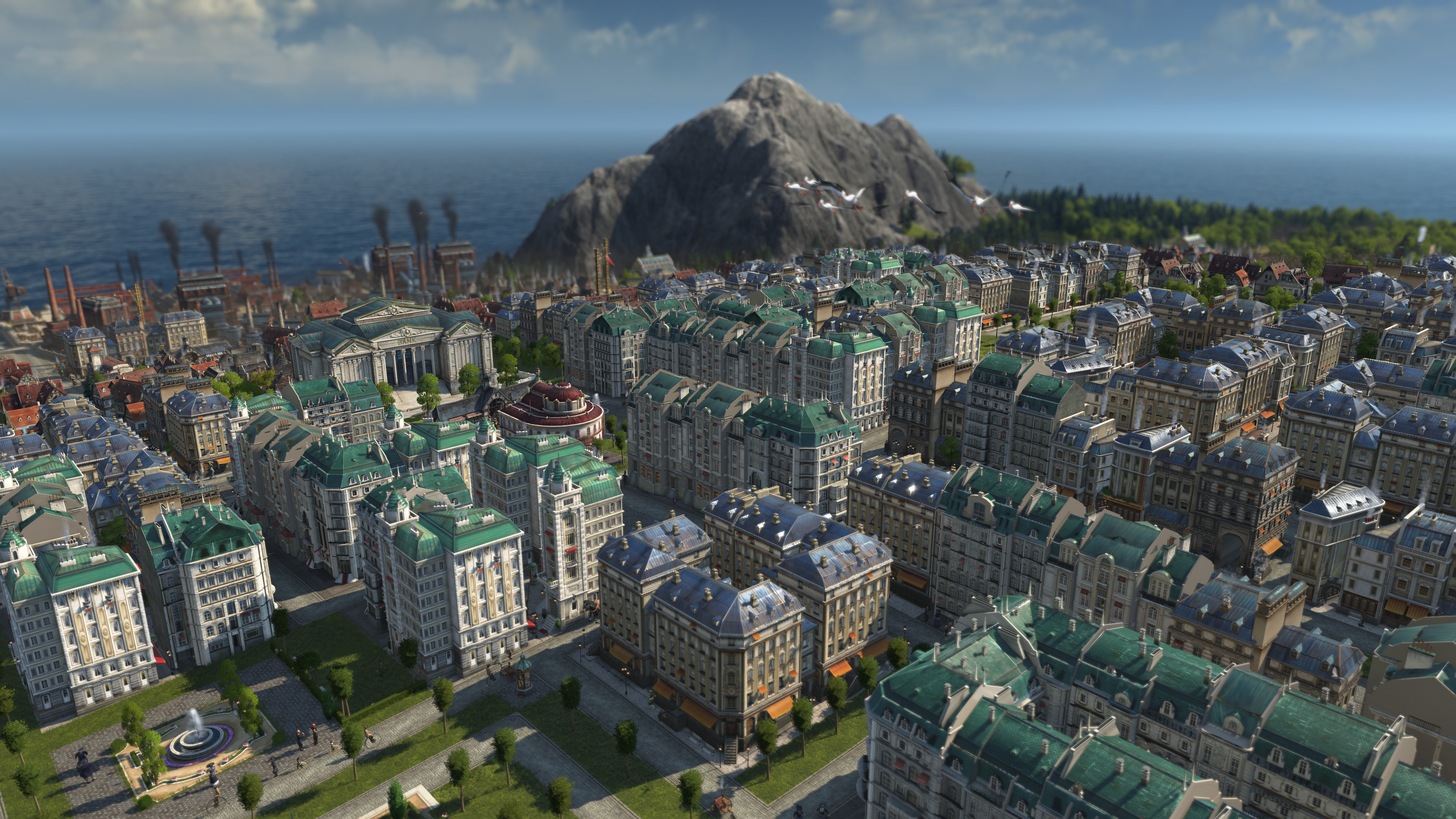
Of course, you can go the other way too, creating an industrial dystopia where the air is choked by the relentless black smog of industry, and a brutal, violent police force keeps protests and strikes in check. “You can just say whatever, I don’t care about pollution and I’m going to build police stations everywhere to suppress the riots,” says Riegert. “But we don’t have a clear black and white system where you’re good or evil. You can be a little bit of both, or you can go to the extremes of both scales. You could prioritise efficient industry above all, and deal with anyone who opposes you. But there’s no good or bad way to play the game and we will never judge the player’s morals.”
In another example of real history informing the game’s systems, colonisation and trading with other nations is another important part of Anno 1800. When your civilisation reaches a certain level, you’ll be able to expand your territory to the so-called New World. This wild, untamed expanse of misty, atmospheric jungle is more difficult to get a foothold in, but brings with it new animals, minerals, luxury goods, and crops to harvest, including cocoa beans for producing chocolate. “When you reach the mid-game, South America can be discovered and built on. You don’t actually have to colonise it, however, and can simply import its unique goods and knowledge. But we know that most players will want to make their mark on this new continent.”
When a player reaches this point, they’ll be more than familiar with how the game works. So the idea of South America is to throw a whole new set of challenges at them, taking them out of their comfort zone. “You’ll have to learn how to import and export goods,” says Riegert. “New factions and characters are also introduced to the game. When you arrive the continent is fighting for independence, and you can get involved in this via the diplomacy system. There’s a lot of stuff going on, and you can create a huge, persistent, expansive empire if you want to. But it’s ultimately up to the player.”
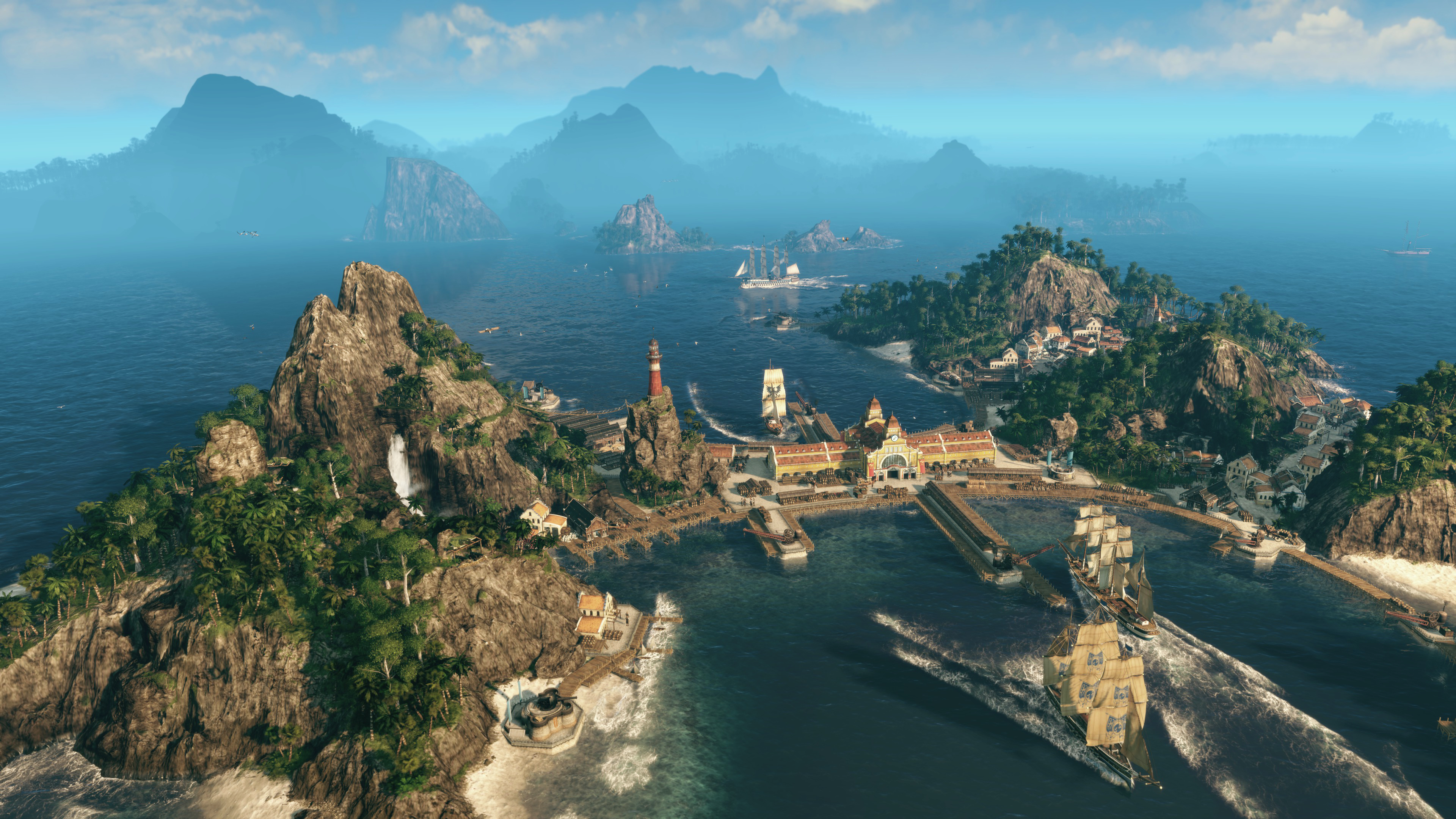
“The game is structured in civilisation levels,” says Riegert. “So we begin with farmers, then the workers, and the whole labour movement. Revolutionary aspects will feature here, such as keeping your people happy to prevent strikes. Then, going further, there are the artisans, the engineers, and the investors.” In my game, I ended up with a surplus of farmers and not enough people to work in my new steel industry. So I clicked on a few farmhouses and spent resources to upgrade them to brick-and-mortar houses, changing the residents from farmers to skilled workers in the process. Keeping a balance of the right kind of workers is an important part of growth in Anno 1800.
As your civilisation develops, the complexity of the game steadily increases. In some city-builders you might just plonk a pub down and watch your citizens merrily flock to it, but here you have to set up the multi-part supply chain that actually produces the beer, from planting hops to actually brewing the stuff. And if that supply chain is interrupted due to a lack of workers or ingredients, people will get pissed off. There are a lot of plates to spin, and the need for multi-tasking only increases as your country expands to include things such as railroads, cities on other islands, and South American colonies.
As someone new to the Anno series, this seems like an ideal entry point. The tutorial wasn’t implemented in the early (but solid) preview build I played, but an intuitive, well-designed interface meant I figured the systems out instinctively. “Through tutorials and the single-player campaign we’ll make sure this is a nice and smooth experience for new players”, says Riegert. “We have a lot of playtesting going on with players of all experience levels, to make sure the balance is just right. So I think this is a great time to join the Anno series.” You can see for yourself when the game is released in February.
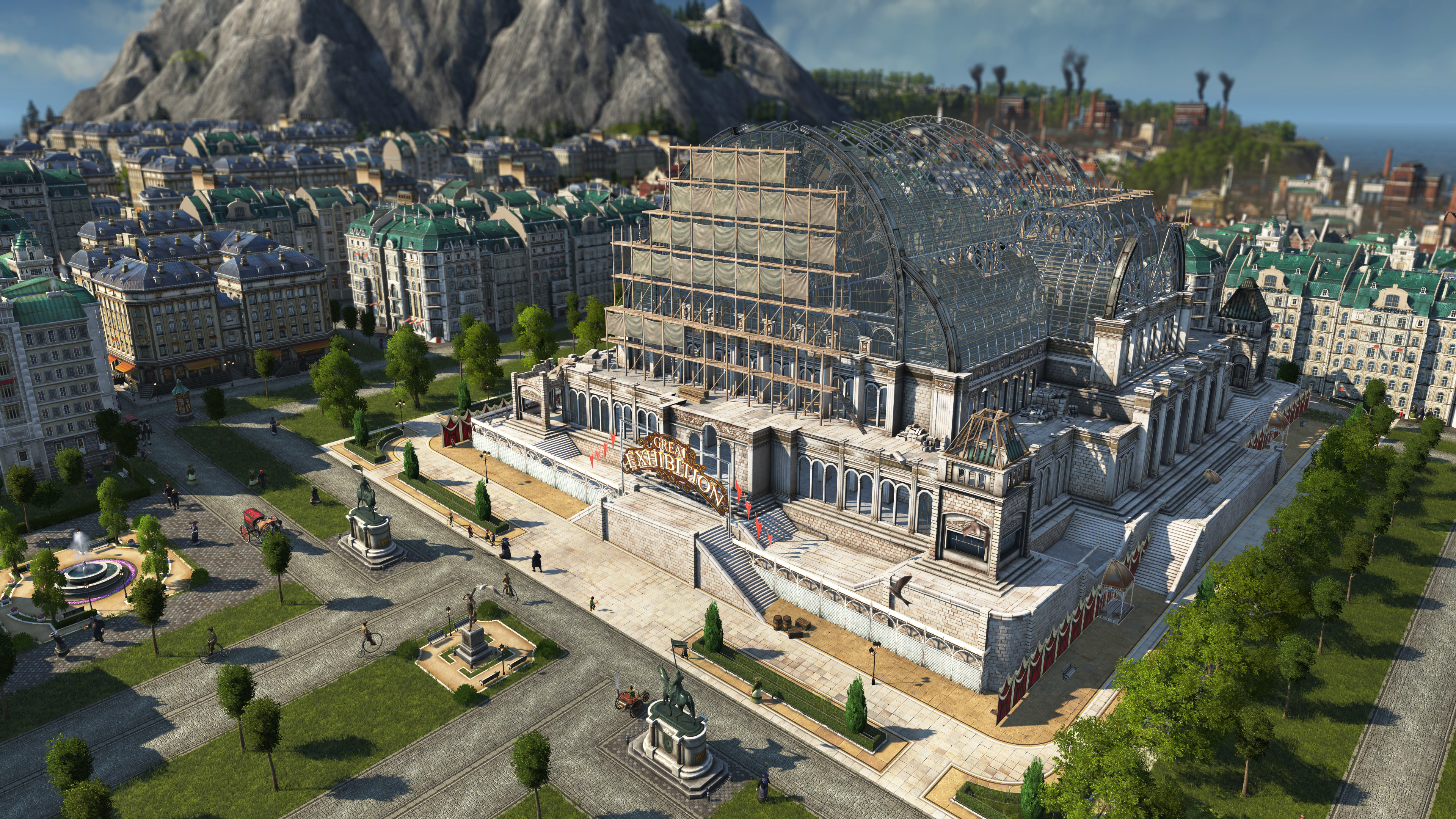
If it’s set in space, Andy will probably write about it. He loves sci-fi, adventure games, taking screenshots, Twin Peaks, weird sims, Alien: Isolation, and anything with a good story.


